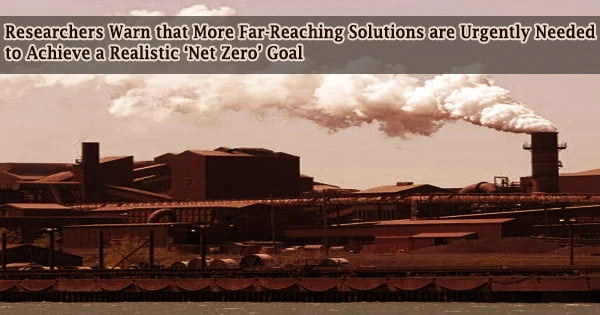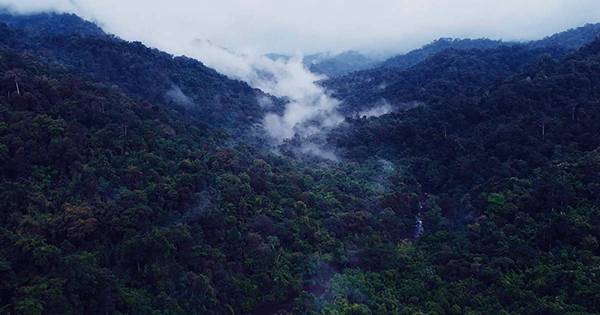If the UK wants to meet climate targets like net-zero, it needs to invest more in engaging a broader set of specialists to make decisions about how the landscape is managed, according to a new analysis.
According to the report, those knowledgeable in the arts, business owners, farmers, landowners, developers, and investors should all be involved in addressing the climate emergency.
The interdisciplinary team of UK academics found “multiple contradictions” in the pathways to net-zero climate targets and recommended for more comprehensive solutions to ensure a more sustainable future.
The Landscape Decisions Programme, led by the University of Leicester, has published a new research report with input from environmental scientists, ecosystem modellers, human geographers, humanities scholars, and other experts from Leicester, Reading, Exeter, Bangor, Leeds, Nottingham, Wales Trinity Saint David, and Robert Gordon universities, plus expertise from Rothamsted Research and the UK Centre for Ecology and Hydrology.
The report, which was financed by the UKRI, emphasizes the possible negative consequences of current net-zero climate-change routes, which include losses in biodiversity, human well-being, and landscape cultural knowledge.
The UK government has previously established a net-zero objective for 2050, which it hopes to achieve by planned reductions in greenhouse gas emissions, improved management of so-called “carbon sinks” like peatlands and forests, and new carbon capture technologies.
The interdisciplinary group’s recommendations include a stronger focus on locally-driven land-use solutions, as a one-size-fits-all approach to net-zero landscape management could be harmful in some situations.
Landscape decisions should be studied not just in terms of their physical impact, but also in terms of the social ramifications of these changes, such as in the case of large-scale farming modifications.
To reach the net-zero goals we need to make some challenging decisions about the way we use, manage, and interact with landscapes in the UK. These landscape decisions are dependent upon many factors including the environmental characteristics, and the geographic location of the land, but in this report, we also consider the wider social framing of these decisions and call for inclusive, place-specific net-zero practices within landscapes that support both biodiversity and people.
Dr. Beth Cole
The organization does acknowledge, however, that “rapid action is required; else, we risk falling further behind on our net-zero carbon ambitions, contributing to biodiversity destruction, and encouraging public disengagement with landscapes.”
Dr. Beth Cole is Senior Research Fellow for the Landscape Decisions Programme, based at the University of Leicester, and lead author for the report. She said: “To reach the net-zero goals we need to make some challenging decisions about the way we use, manage, and interact with landscapes in the UK. These landscape decisions are dependent upon many factors including the environmental characteristics, and the geographic location of the land, but in this report, we also consider the wider social framing of these decisions and call for inclusive, place-specific net-zero practices within landscapes that support both biodiversity and people.”
“Collaborating across disciplines this group of researchers together make a team that is greater than the sum of its parts and who have broken down some of the silos this urgent issue is normally approached from.”
Dr. Katharine Earnshaw, a co-author based in the University of Exeter’s Department of Classics and Ancient History, said: “We have an urgent need to think about the culture of change not just what could be possible on paper. This means a better consideration of the whole picture: social and ethical ideas the habits of thinking alongside empirical evidence, taking account of past, present, and future.”
“This novel report demonstrates the genuine benefits of working across different subjects and with communities and businesses so that we do not reproduce the inequalities that have led us to this crisis.”
Co-author and natural scientist Professor Simon Willcock, of Rothamsted Research and Bangor University, added: “Obviously, there is an urgent need to move towards net-zero landscape decisions to limit the impacts of climate change. However, landscape changes impact a great variety of things from the carbon and water cycles to biodiversity and local peoples.”
“Only by making interdisciplinary decisions that take these many things into account can we move towards achieving sustainability more broadly benefiting people and nature. Our report highlights this and provides key recommendations as to how net-zero can be achieved more inclusively.”
Professor Heiko Balzter is a Professor of Physical Geography and Director of the Centre for Landscape and Climate Research at the University of Leicester, as well as the Chair of the UKRI Landscape Decisions Programme’s Programme Coordination Team. He added:
“Our landscapes in the UK are about to change faster than they have done in a long time. These changes are driven by the urgent need to prevent catastrophic climate change by achieving net-zero emissions no later than 2050, reversing the loss of many endangered animal and plant species, as well as improving the food security and livelihoods of our farmers. This report highlights some key recommendations for decision-makers on ethical consideration, participatory approaches and the trade-offs and synergies between different goals and interventions.”
Landscape Decisions to Meet Net Zero Carbon: Pathways that consider ethics, socio-ecological diversity, and landscape functions’ is available in full at landscapedecisions.org. It is a Strategic Priorities Fund (SPF) programme funded by UK Research and Innovation (UKRI).
















